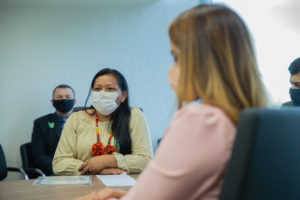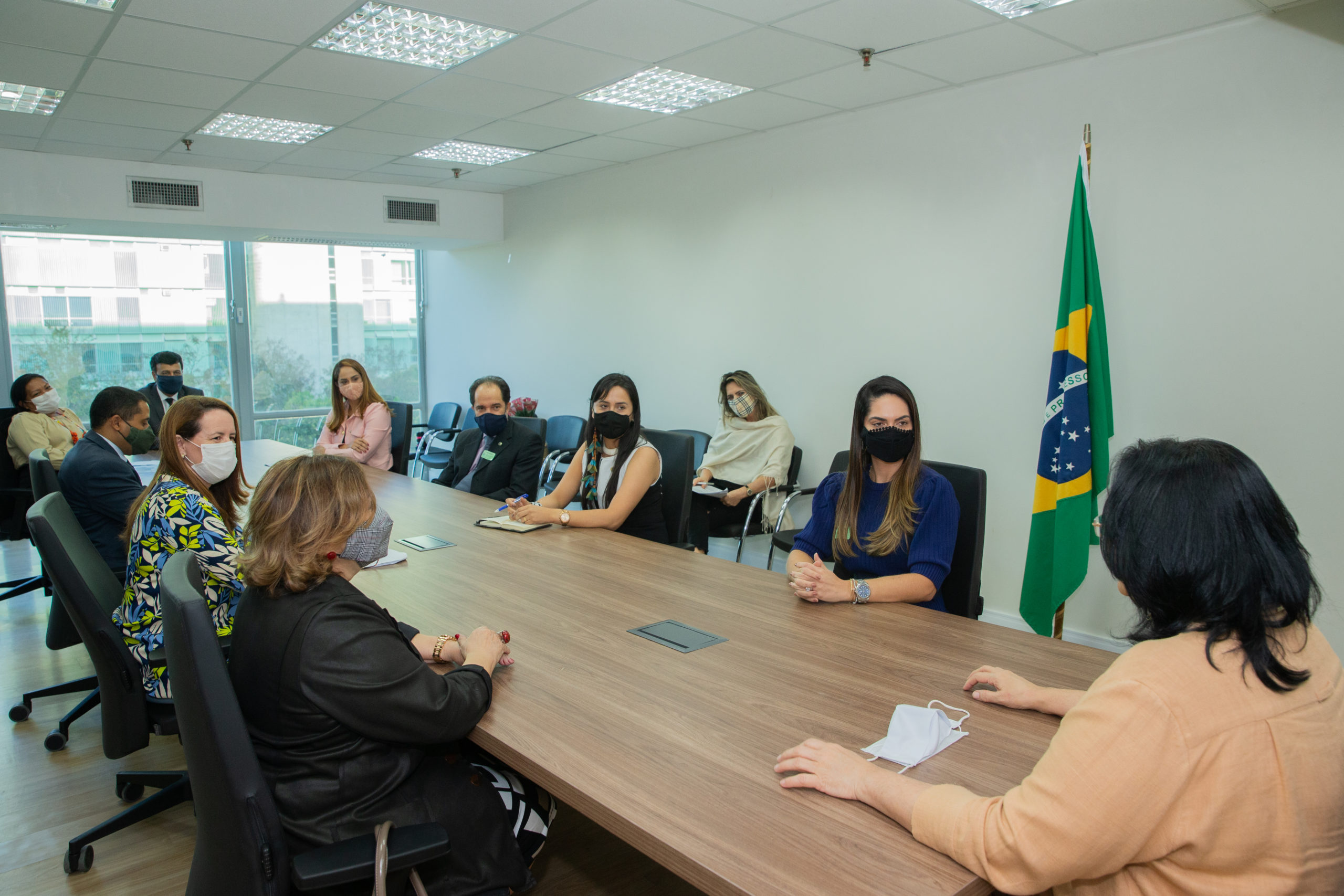Initiatives are underway to empower and strengthen indigenous women in Acre, Brazil. On August 20th, the Government of Acre joined the Office of the First Lady and Secretariat for Social Assistance, Human Rights and Policies for Women (SEASDHM), together with the National Secretariat for Policies for Women (SNPM) and the Ministry of Women, Family and Human Rights (MMFDH) in Brasilia to implement the Integrated Service Center for Women (Nuiam) and three units of Casa Mulher Brasileira in Acre.
Strengthening the Economy of Indigenous Women During the Pandemic
Additionally, the project, Strengthening the Economy of Indigenous Women During the Pandemic, was presented to Minister Damares Alves by Francisca Arara— President of the GCF Task Force Regional Committee for Indigenous Peoples and Local Communities in Brazil and head of the Department of Standardization and Registration of the Institute for Climate Change and Regulation of Environmental Services (IMC).
The project, which will be developed in ten indigenous lands involving approximately 200 women, aims to strengthen economic autonomy, cultural preservation, and guarantee of rights for indigenous women during and after the pandemic by providing workshops training for entrepreneurial practices. Among the ventures proposed is the creation of an indigenous clothing brand with products available for sale in an online store.
“The project will strengthen the work that indigenous women have already been doing, weaving, cosmetics and handcrafts. We will provide training to increase the quality of these products”
–Francisca Arara

Francisca Arara, President of the GCF Task Force Regional Committee for Indigenous Peoples and Local Communities in Brazil and head of the Department of Standardization and Registration of the Institute for Climate Change and Regulation of Environmental Services (IMC). Photo: Willian Meira/MMFDH
The project was developed in partnership with the Office of the First Lady, the Environmental Services Development Company (CDSA) and the State Secretariat for Social Assistance, Human Rights and Policies for Women (Seasdham).
Projeto Maria da Penha goes to School
The meeting included discussion around implementation of the project, Projeto Maria da Penha goes to School, which works with the Maria da Penha Law No. 11.340 / 2006 in schools to contribute to the training of education professionals and supporting them in the implementation of pedagogical projects, in addition to guiding them in the notification of situations of violence, including sexual violence, against children and adolescents.
Representatives of Acre have proposed to extend the project to the indigenous villages with the Office of Policies for Women of SEASDHM of Acre, with the title, “Maria da Penha goes to the Villages.”
“We are the first state to present this proposal, we will translate all courses and booklets into the Pano and Aruak languages to increase the reach among indigenous peoples. We will train teachers in order to reduce the rates of domestic violence in our state”
–Isnailda Gondim, Project Director

